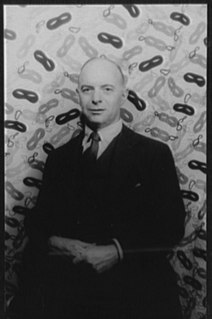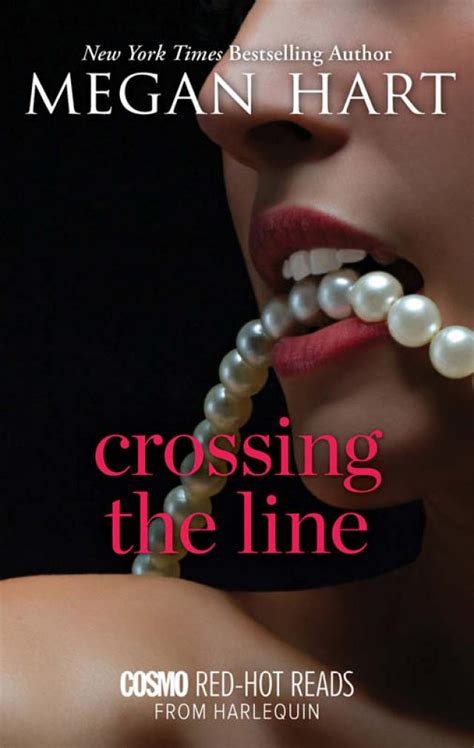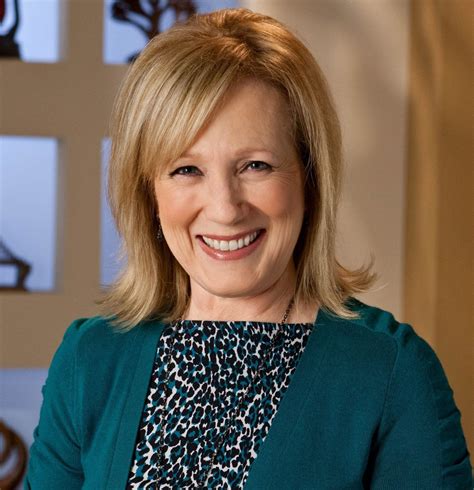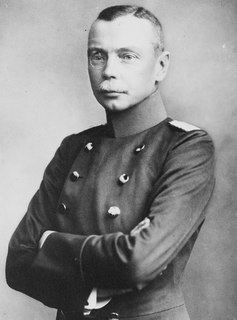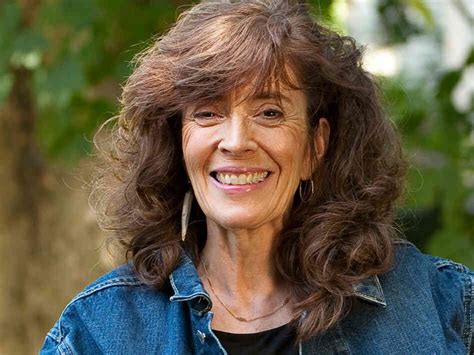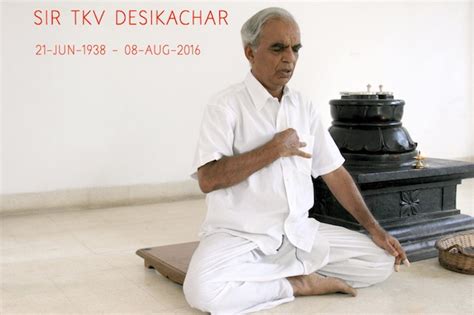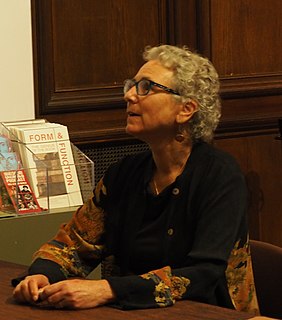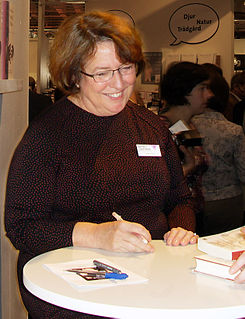Top 1200 Stages Of Grief Quotes & Sayings - Page 3
Explore popular Stages Of Grief quotes.
Last updated on April 21, 2025.
People read a lot of stories about witches, fairies, paranormals, and children possessed by evil spirits. They go to films showing rituals featuring pentagrams, swords, and invocations. That's fine, people need to give free reign to their imagination and to go through certain stages. Anyone who gets through those stages without being deceived will eventually get in touch with the Tradition.
There are stages in bread-making quite similar to the stages of writing. You begin with something shapeless, which sticks to your fingers, a kind of paste. Gradually that paste becomes more and more firm. Then there comes a point when it turns rubbery. Finally, you sense that the yeast has begun to do its work: the dough is alive. Then all you have to do is let it rest. But in the case of a book the work may take ten years.
Sometimes grief is a comfort we grant ourselves because it's less terrifying than trying for joy. Nobody wants to admit it. We'd all declare we want to be happy, if we could. So why, then, is pain the one thing we most often hold on to? Why are slights and griefs the memories on which we choose to dwell? Is it because joy doesn't last but grief does?
There are some women in whom conscience is so strongly developed that it leaves little room for anything else. Love is scarcely felt before duty rushes to encase it, anger impossible because one must always be calm and see both sides, pity evaporates in expedients, even grief is felt as a sort of bruised sense of injury, a resentment that one should have grief forced upon one when one has always acted for the best.
Survivors do not mourn together. They each mourn alone, even when in the same place. Grief is the most solitary of all feelings. Grief isolates, and every ritual, every gesture, every embrace, is a hopeless effort to break through that isolation. None of it works. The forms crumble and dissolve. To face death is to stand alone.
I surrender it to God, knowing that the pain itself is a product or a reflection of how I am interpreting whatever it is that is causing me pain. Some pain is simply the normal grief of human existence. That is pain that I try to make room for. I honor my grief. I try to be kinder to myself. I give myself time to move through and to process whatever is making me sad.
And that's where I think vulnerability comes in - the fact that we're figuring out that there is strength in actually being vulnerable to one another, there is strength to letting go of grief, or at least processing grief more helpfully than we've necessary seen, particularly in these corseted upper class dramas before.
You cannot die of grief, though it feels as if you can. A heart does not actually break, though sometimes your chest aches as if it is breaking. Grief dims with time. It is the way of things. There comes a day when you smile again, and you feel like a traitor. How dare I feel happy. How dare I be glad in a world where my father is no more. And then you cry fresh tears, because you do not miss him as much as you once did, and giving up your grief is another kind of death.
Grief, unresisted, is grace. It doesn't mean it doesn't hurt anymore, it doesn't mean it doesn't rip your heart out....In great grief, there's an incredible love in it. In love there's a tinge of bitter. In true love. My teacher used to say 'all love is bittersweet'. All things experienced fully, reveal their opposite.
I think everyone understands grief, the journey it takes us on, whether it's the death of a loved one, the end of a relationship, a disappointment. Some people don't deal with it, the power of it. Some do. Some feel the weight of it and it informs their choices. I've had to open up to grief in different contexts.
He didn't know of course. Not really. And yet that was what he said, and I was soothed to hear it. For I knew what he meant. We all have our sorrows, and although the exact delineaments, weight, and dimensions of grief are different for everyone, the color of grief is common to us all. "I know," he said, because he was human, and therefore, in a way, he did.
Much of Hamlet is about the precise kind of slippage the mourner experiences: the difference between being and seeming, the uncertainty about how the inner translates into the outer, the sense that one is expected to perform grief palatably. (If you don’t seem sad, people worry; but if you are grief-stricken, people flinch away from your pain.)
The essential thing is action. Action has three stages: the decision born of thought, the order or preparation for execution, and the execution itself. All three stages are governed by the will. The will is rooted in character, and for the man of action character is of more critical importance than intellect. Intellect without will is worthless, will without intellect is dangerous.
I always encourage people who had a loss of any kind that you find something to focus on that takes you out of that horrific sorrow. And you have to go through it. No way out but through in the grief. But don't remain in the grief. You know, find something that you can nurture as you would that being that you loved.
The only education in grief that any of us ever gets is a crash course. Until Caroline had died I had belonged to that other world, the place of innocence, and linear expectations, where I thught grief was a simple, wrenching realm of sadness and longing that graduallu receded. What that definition left out was the body blow that loss inflicts, as well as the temporary madness, and a range of less straightforward emotions shocking in their intensity.
I think people become environmentalists through experiences of beauty and grief. There was that pond that you visited when you were a child, and there were frogs and turtles. You go back there and it's dead now. The forest you went to, now there are bulldozers, now it's a strip mall. These experiences of beauty followed by grief affect us more than learning that CO2 levels are now 400 parts per million.
to love life, to love it even when you have no stomach for it and everything you've held dear crumbles like burnt paper in your hands, your throat filled with the silt of it. When grief sits with you, its tropical heat thickening the air, heavy as water more fit for gills than lungs; when grief weights you like your own flesh only more of it, an obesity of grief, you think, How can a body withstand this? Then you hold life like a face between your palms, a plain face, no charming smile, no violet eyes, and you say, yes, I will take you I will love you, again.
Time passes and I am still not through it. Grief isn't something you get over. You live with it. You go on on with it lodged in you. Sometimes I feel like I have swallowed a pile of stones. Grief makes me heavy. It makes me slow. Even on days when I laugh a lot, or dance, or finish a project, or meet a deadline, or celebrate, or make love, it is there. Lodged deep inside of me.
No one ever came to grief-except honorable grief-through riding horses. No hour of life is lost that is spent in the saddle. Young men have often been ruined through owning horses, or through backing horses, but never through riding them; unless of course they break their necks, which, taken at a gallop, is a very good death to die.
I'm part of the tribe who have said goodbye to one parent and are feeling a sense of responsibility for the one who remains - in my case, my mother. How do I make her time smoother, happier? How do I try to ease her, a widow, away from the dark well of grief without dishonoring the necessity of that grief?
It is a strange paradox that while the grief of football fans(and it is real grief) is private - we each have an individual relationship with our clubs, and I think that we are secretly convinced that none of the other fans understands quite why we have been harder hit than anyone else - we are forced to mourn in public, surrounded by people whose hurt is expressed in forms different from our own.






